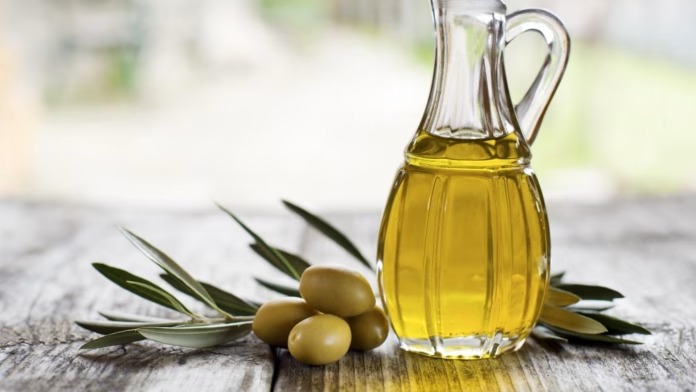Olive oil is a staple of the Mediterranean diet and has been touted for its health benefits for centuries. It is a type of oil that is extracted from the fruit of the olive tree, and it is high in monounsaturated fatty acids, which are considered to be “good” fats.
In recent years, olive oil has gained more attention as a superfood, particularly for seniors who need to maintain their health and reduce their risk of chronic diseases. In this article, we will explore why olive oil is the best oil for seniors and how it can prevent heart strokes.
Benefits of olive oil for seniors
Olive oil is rich in antioxidants and anti-inflammatory compounds, making it a powerful ally in the fight against chronic diseases. Here are some of the benefits of olive oil for seniors:
Lower risk of heart disease:
Heart disease is the leading cause of death among seniors, but incorporating olive oil into their diet can significantly reduce their risk of developing heart disease. Studies have shown that a diet rich in olive oil can lower levels of LDL (bad) cholesterol and raise levels of HDL (good) cholesterol, reducing the risk of heart attacks and strokes.
Improved cognitive function:
Seniors who consume olive oil regularly may experience improved cognitive function. A study published in the Journal of Alzheimer’s Disease found that seniors who consumed a Mediterranean diet supplemented with olive oil had better cognitive function than those who followed a low-fat diet.
Reduced inflammation:
Inflammation is a natural response to injury or infection, but chronic inflammation can lead to a variety of health problems. Olive oil contains anti-inflammatory compounds that can help reduce inflammation in the body, potentially reducing the risk of chronic diseases such as arthritis, cancer, and heart disease.
Better digestion:
Olive oil can also improve digestion in seniors. It has been shown to stimulate the production of digestive enzymes and bile, which can help seniors digest their food more effectively and reduce symptoms of indigestion.
Lower risk of type 2 diabetes:
Seniors who consume olive oil may also have a lower risk of developing type 2 diabetes. A study published in the journal Diabetes Care found that a Mediterranean diet supplemented with olive oil reduced the risk of type 2 diabetes by 40%.
Reduced risk of stroke:
Olive oil can also reduce the risk of stroke in seniors. A study published in the journal Neurology found that seniors who consumed olive oil regularly had a 41% lower risk of stroke than those who never or rarely consumed olive oil.
How olive oil prevents heart strokes?
Olive oil is high in polyphenols, which are plant compounds that have been shown to have numerous health benefits, including protecting against heart disease. Here’s how olive oil can help prevent heart strokes:
Role of polyphenols in olive oil: Polyphenols in olive oil can help reduce inflammation and prevent the formation of blood clots, both of which are major contributors to heart disease.
Effect on blood pressure: Studies have shown that consuming olive oil can help reduce blood pressure, which is a major risk factor for heart disease.
Effect on cholesterol levels: Olive oil can help improve cholesterol levels by reducing LDL (bad) cholesterol and increasing HDL (good) cholesterol.
Antioxidant properties: Olive oil is rich in antioxidants, which can help protect against oxidative damage and reduce the risk of heart disease.
How to incorporate olive oil into a senior’s diet?
Incorporating olive oil into a senior’s diet is easy and can be done in a variety of ways. Here are some tips on how to do it:
Cooking with olive oil: Olive oil can be used for cooking instead of other oils, such as vegetable or canola oil. It’s best to use extra-virgin olive oil, which is the least processed and has the most health benefits.
Using olive oil as a salad dressing: Olive oil can be used as a salad dressing instead of creamy dressings that are high in calories and fat. Simply mix olive oil with vinegar or lemon juice for a tasty and healthy dressing.
Substituting butter and margarine with olive oil: Olive oil can be used as a substitute for butter and margarine in baking or spreading on toast. This will reduce the intake of saturated and trans fats, which are bad for heart health.
Choosing high-quality olive oil: It’s important to choose high-quality olive oil that has been cold-pressed and is extra-virgin. This ensures that the oil is not processed with chemicals or heat, which can damage its health benefits.
Olive oil is a powerful ingredient that can help prevent heart strokes and promote good heart health in seniors. Its polyphenols, effect on blood pressure and cholesterol levels, and antioxidant properties make it the best option for seniors who want to maintain good heart health. By incorporating olive oil into their diet through cooking, salad dressings, and substitutions for butter and margarine, seniors can reap the benefits of this healthy ingredient.





